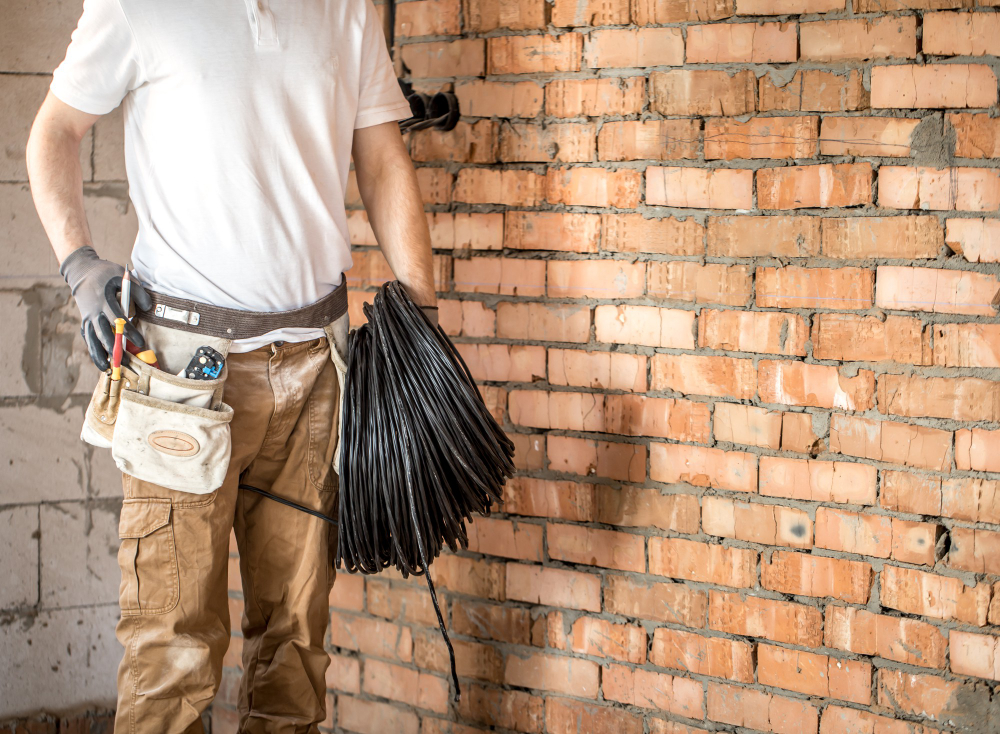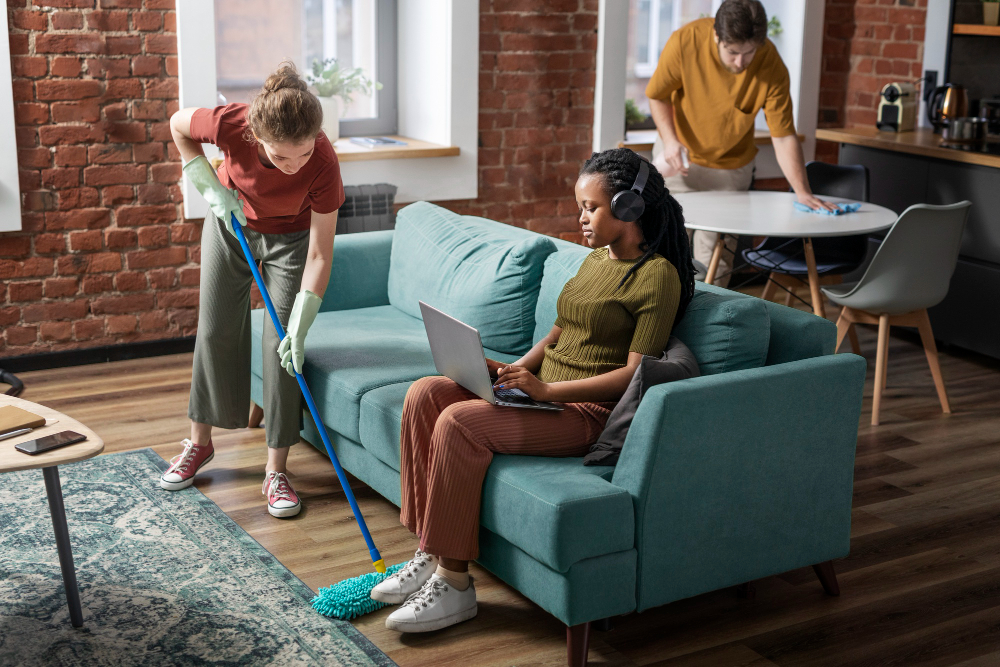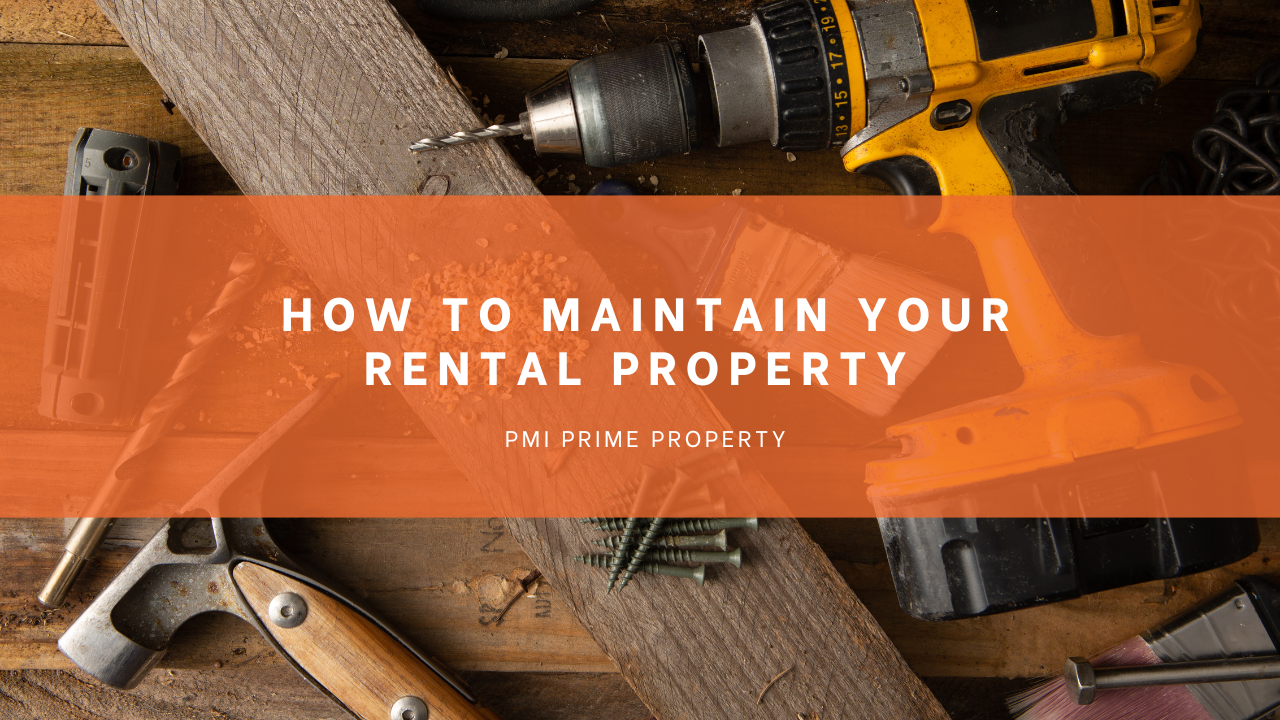Key Takeaways
Protect Your Investment: Regular inspections, routine repairs, and routine maintenance maintain rental property value and prevent costly emergency repairs.
Boost Tenant Satisfaction: A well-maintained property encourages tenant retention, lease renewals, and creates positive landlord-tenant relationships.
Plan and Delegate Maintenance: Budget for maintenance tasks, employ a professional property manager, and document the property's condition to simplify rental property maintenance and be a responsible real estate investor.
A well-maintained rental property can increase its value, attract long-term tenants, and reduce unexpected maintenance expenses.
Studies show that rental properties with regular upkeep for minor repairs have fewer vacancies, ensuring tenant satisfaction. As a landlord, your rental property is a source of income, and how you manage property maintenance can determine its long-term profitability.
Proper rental property care involves being proactive, setting maintenance routines, and knowing when to bring in professionals.
To help real estate investors stay on top of this time-consuming responsibility, PMI Prime Property put together this article with practical steps on how to maintain your rental property effectively. Follow our essential maintenance tips to save time and your cash flow, so you can maintain your rental income.
Book Your Free Rental Analysis Today!
Prevent Problems and Maximize Value: Landlord Maintenance Guide
The Value of Ongoing Maintenance
Ongoing rental property maintenance is one of the most critical parts of being a landlord. It is not enough to wait until something breaks before taking action. Landlords need to have rental maintenance strategies in place.

When you keep up with routine rental property maintenance, you maintain structural integrity, avoid tenant complaints and tenant turnover, and save yourself from sudden financial strain.
A rental property is similar to any other long-term investment; it requires responsibility, attention to detail, and consistent oversight, especially when it comes to property upkeep and maintenance.
By setting a rental property maintenance schedule and sticking to it, property owners can address small rental property issues before they grow into large, expensive repairs.
Preserves long-term property value: Routine rental property maintenance ensures that the rental property retains its market value. For example, repairing exterior walls or a minor roof leak right away can prevent water damage that could cost thousands to fix later. By keeping up with small tasks, you avoid rental depreciation and increase resale potential.
Encourages lease renewals: Tenants who live in a well-maintained space are more likely to stay longer. A comfortable and safe rental property environment builds trust between landlords and tenants, lowering turnover costs and rental vacancy periods.
Minimizes sudden expenses: Emergency repairs are often more expensive than preventive rental property maintenance. Replacing HVAC filters, carbon monoxide detectors, smoke detectors, heating systems, and servicing equipment reduces the chance of unexpected breakdowns and emergency repairs, which could disrupt both tenants and your budget.
Essential Duties of Landlords
A responsible landlord ensures the rental property remains safe, livable, and compliant with local laws. Failing to uphold these regular rental property maintenance duties can result in legal penalties, costly lawsuits, as well as tenant turnover and strained tenant relationships.

Being responsible and proactive towards investment property upkeep helps build a reputation as a reliable and trustworthy landlord, which can attract better tenants in the long run. This is what rental property owners need to do for rental maintenance:
Conduct regular maintenance inspections: Landlords are expected to carry out move-in and move-out inspections, along with at least one or two checks per year as annual tasks. This allows you to document the condition of the property, address potential problems, and confirm that tenants are following lease rules.
Handle timely repairs: You are legally responsible for ensuring that major systems such as plumbing, heating, cooling, smoke detectors, and electrical systems remain in safe working order. Responding quickly to necessary repair requests and routine maintenance keeps you compliant with housing regulations and avoids tenant dissatisfaction.
Ensure property compliance: Local building codes may require fire alarms, carbon monoxide alarms, secure locks, and safe stairways. Staying up to date on these maintenance regulations prevents fines, liabilities, and costly damage. Keeping your property code-compliant also assures potential tenants of their safety.
Professional property management companies take the stress out of these rental maintenance responsibilities, ensuring your investment property remains safe, compliant, and profitable while saving you time and effort.
Rental property owners managing multiple properties often use the services of a property management company.
Professional property managers coordinate routine and emergency maintenance to keep rental properties in top condition. Property management companies handle scheduling with trusted contractors, ensuring repairs are completed quickly and cost-effectively. On top of overseeing maintenance responsibilities, property managers also offer a variety of other services, like tenant screening and collecting rent.
By staying proactive with inspections and upkeep, property managers help prevent small maintenance issues from turning into costly problems.
Read our blog post about what an expert property manager can do for you to learn more.
Our Property Management Services
Tenant Roles in Property Care
Tenants also play an important part in maintaining a rental property.

Since they live on the premises every day, they are often the first to notice when something needs maintenance. A clear understanding of their responsibilities and the lease agreement encourages tenant cooperation, prevents unnecessary conflicts and property damage. Landlords can encourage tenant requests by informing residents how and when to report maintenance requests and maintenance concerns for timely repairs.
Establishing these maintenance responsibilities upfront in the lease agreement ensures both landlord and tenant are aware of their roles in keeping the property in good condition. Here’s what tenants need to do for their maintenance tasks:
Respect lease agreement obligations: Tenants must follow agreed rules such as limiting occupancy, avoiding unauthorized alterations, and caring for fixtures. Compliance with the lease ensures smoother landlord-tenant relationships and less wear and tear.
Report issues without delay: Tenants are usually the first to notice maintenance issues, broken appliances, or faulty light bulbs and wiring. Encouraging them to report problems promptly allows landlords to address tenant requests before they grow into costly repairs.
Maintain daily cleanliness: It is the tenant’s upkeep responsibility to keep the rental unit reasonably clean. Regular cleaning, proper garbage disposal, and avoiding misuse of appliances prevent pest problems and property damage/maintenance issues.
To learn more about building positive landlord-tenant relationships, check out our guide for landlords.
Essential Tips and Steps for Effective Rental Property Maintenance
Practical strategies help landlords balance their responsibilities and keep tenants happy without feeling overwhelmed. If you're juggling multiple properties, or even just one, you'll need to plan ahead.
By planning, you can spread maintenance costs over time and avoid being caught off guard by major damage and higher maintenance costs.
When you establish routines and communicate clearly, maintenance becomes less time-consuming, and you can save time for more important worries. Here’s what you can do to minimize maintenance tasks:
Create a maintenance budget: A recommended practice is to set aside about one percent of the property’s value each year, or $1 per square foot. This ensures that you have funds for both routine care, quality materials, and unexpected issues like roof repairs or appliance replacements.
Work with qualified professionals: It's not always as easy as changing some light bulbs, as some jobs are too risky or complex to attempt yourself. Hiring licensed contractors for electrical, plumbing, and roofing work ensures that repairs are done safely, correctly, and in compliance with laws.
Maintain detailed records: Documenting routine inspections, tenant communications, and repair receipts helps you stay organized. A detailed log not only supports legal protection in disputes but also helps with tax reporting and planning for future upgrades, so be sure to be tracking expenses.
Focus on exterior upkeep: A property’s curb appeal and landscaping often make the first impression. Keep lawns trimmed, gutters clean, and pathways clear for boosted curb appeal and appealing landscaping. Adequate lighting and secure entry points improve both safety, landscaping, and curb appeal, which appeals to prospective tenants.
Prioritize seasonal maintenance: Different seasons bring different challenges. In winter, ensure pipes are insulated to prevent frozen pipes and small leaks. In summer, inspect air conditioning systems, HVAC systems and address pest infestations and mold growth, if any. Seasonal checklists help prevent weather-related damage.
Create a regular maintenance schedule: Tenants rely on appliances daily, so keeping mechanical systems in top condition is critical. Conduct minor repairs as a part of a routine maintenance schedule, like cleaning dryer vents to reduce fire hazards (and be sure to check expiration dates on fire extinguishers), descaling water heaters to improve energy efficiency, and replacing aging appliances before they break down.
Bottomline
Maintaining a rental property is more than making repairs when they happen. It requires routine inspections, quick response to repairs, preventive care, tenant communication, and smart budgeting to avoid higher costs.
By staying proactive on maintenance tasks, landlords can extend the life of their properties, avoid major repairs, keep tenants satisfied, and reduce vacancy rates and unexpected maintenance costs.
PMI Prime Property helps landlords manage every aspect of property maintenance. From inspections and repairs to tenant communication and budgeting support, our team ensures your rental stays in top condition.
Contact PMI Prime Property today to learn how we can help you protect your investment and simplify the responsibilities of being a landlord.


